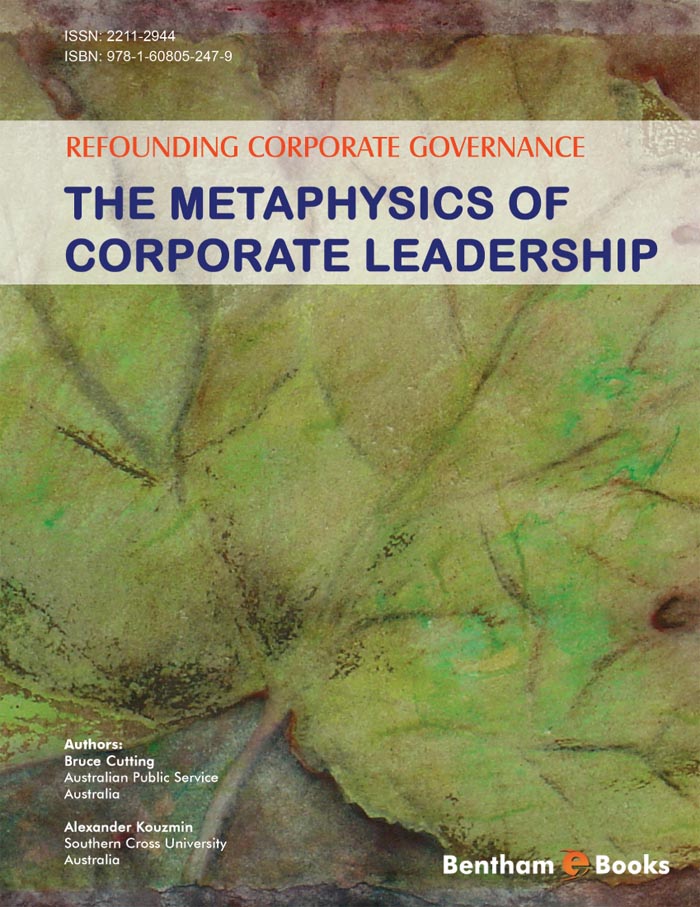Preface
Since Montesquieu's (1952; 1689-1755) incisive differentiation of the principal forms of governance and their components, the rate at which different theories of governance have been proposed has exponentially grown until now when we have a plethora of different theories on the best way to govern, lead and/or manage. Anyone interested in this topic is confronted with many conflicting schools of thought, from Weber's (1948; 1864-1920) theory of the "iron cage" to Wheatley's (1992) New-Age concept of leadership. This seeming maze of different theories can be seen merely as different perspectives on the overall embracing concept of governance which is, essentially, the holistic conception and explanation of differentiated purposive human systems-about paradigms and systems that have their inception in and are limited by, the human mind. The core challenge, then, is to put some order and rationale into the understanding of this "many-headed" concept of governance. We meet this challenge by mapping out a cognitive framework that is capable of embracing and ordering all the multitudinous differentiated conceptions of human governance experienced at the different levels of society.
In essence, this study reformulates the concept of organizational governance in terms of the metaphor of the human mind. The cognitive model of governance formulated can be used to explain how and why different modes of governance are embraced by the different organizations in different circumstances and why this is appropriate and necessary, how and why governance changes over time, and how it is important to institute processes of inquiry, dialogue and reflection in order to know and choose more consciously.
Essentially, we reformulate the principles and understanding of organizational governance as an outcome of a process of validating the veracity, realism and prognosticating value of the particular form of institutional archetyping that is based on the metaphor of the human mind. This approach encapsulates the following key "truths" or "facts" about organizational governance.
-
The nature and dynamics of governance in organizations reflect the way humans think-OR, the nature, dynamics and development of organizations can be reasonably known, intelligently understood and wisely developed by using the conceptual framework suggested by the metaphor of the mind.
-
The essence of human thinking results from a process of cognitive differentiation that is faithfully based on hierarchically structured trinities of abstraction (as originally identified by the Greeks and carried forward by the Western scholastic philosophers), which express the different cognitive perspectives that one constructs to perceive, understand and know reality. The key heuristic insight contained within the metaphor of the mind, therefore, is to reinterpret Aquinas' (1952; c.1225-1274) trinity of abstraction (Lonergan, 1967) as a trinity of cognitive perspectives relevant to a particular aspect of governance. Essentially, the effect of this intellective insight is to transform Weber's (1949; 1962) ideal types into a newly created concept of a trinity of menetypes (numbered ideal types in an ordered set). The principles underpinning the concept of menetypes facilitate understanding and meaning because the conceptual framework of the mind metaphor is based simply on this trinity of menetypes, repeated again and again. Therefore, even though the conceptual framework of governance might seem expansive, fluid and complex, it can be viewed simply as a hierarchically structured, interdependent pattern of cognitive perspectives arranged at each point of focus in the form of the basic trinity of menetypes applicable to that level of thinking.
-
The conceptual framework of the mind metaphor has great explanatory, heuristic and prognostic power and can be used to guide the individual or group process of reaching judgments of fact, assessments of value and decisions of intent. This inherent power of the mind metaphor is validated by the comprehensive, structured and probing analysis conducted into the governance of the Private Corporation and public administration within US society. Although the study is principally focused at the level of issues and principles, it is clearly evident that the conceptual framework of the mind metaphor does provide a powerful means of analysing the authority, culture and participants within particular real-life organizations. This ability to integrate the analysis of governance over the range of levels of human action and understanding is a key contributor to its explanatory and prognosticating powers.
As a consequence of using the mind metaphor to analyse governance in Western society, the key conclusion is that there has been a substantial shift or evolution in thinking from a managerialist mindset to the more abstract politicist mindset (which has alternately been described as postmodernism). This fundamental shift in mindset is pervasive and influences the perspectives taken at many levels in the human governance systems. In particular, the analysis of governance in the US society concludes/prognosticates that corporate governance should be treated more consciously as a political process by building in the necessary political checks and balances that cultivate the ethics of appropriateness, responsibility and accountability. Further, there are changing demands on the education and development of aspiring executives and future leaders to enable them to work in more abstract, political and interdependent systems of governance. This new operational environment requires them to develop the capacity to think more politically and at more abstract levels, and to be able to coach others to develop their cognitive powers likewise. Education should therefore be a more experiential, personal and reflective whole-of-life learning experience that is in stark contrast to the current approach to university mass education and the MBA production lines.
This book is a companion book to Refounding Political Governance: The Metaphysics of Public Administration, which has also been published in this 'Public Policy, Administration and Management' series.
Bruce Cutting
Alexander Kouzmin

